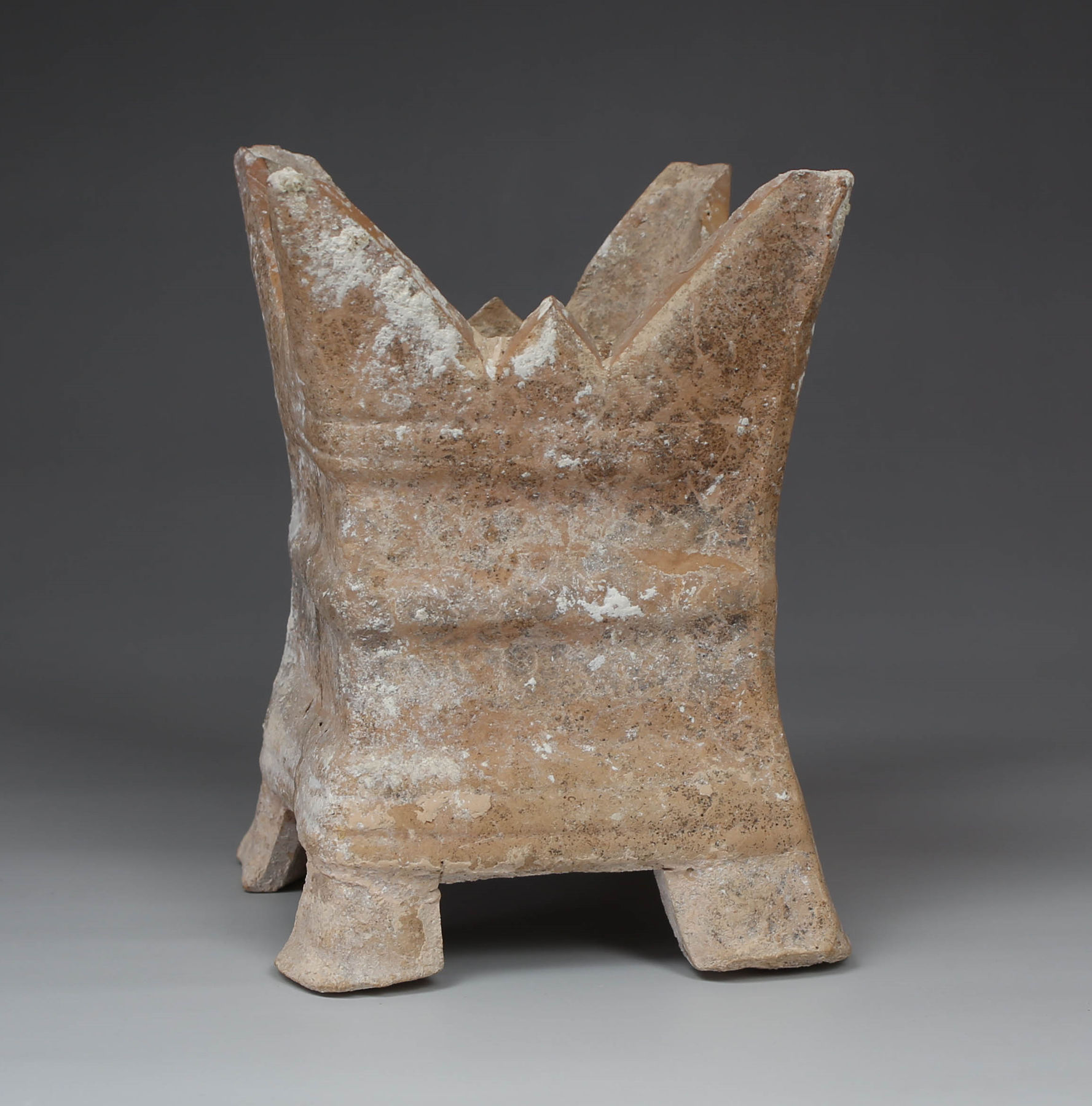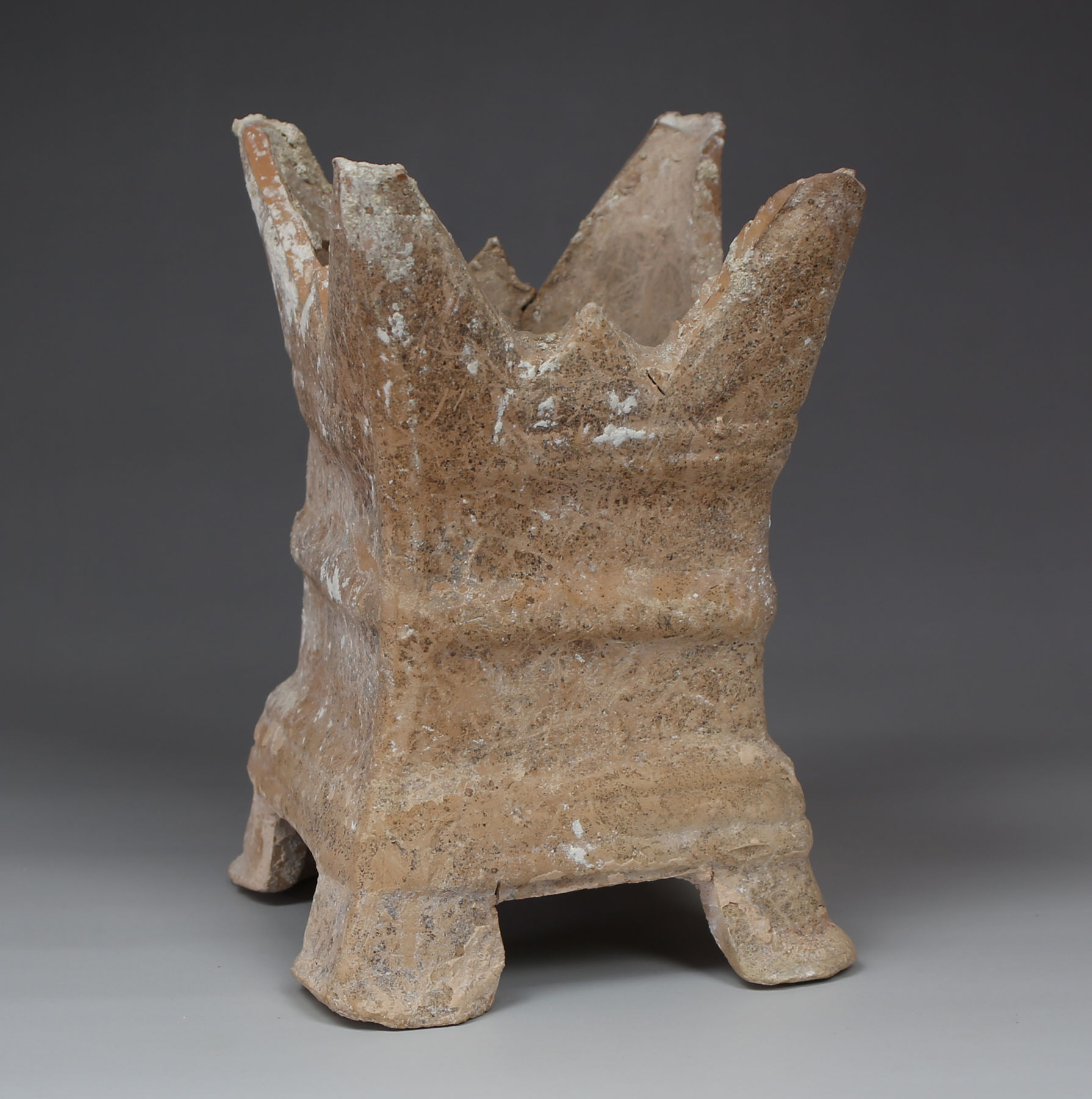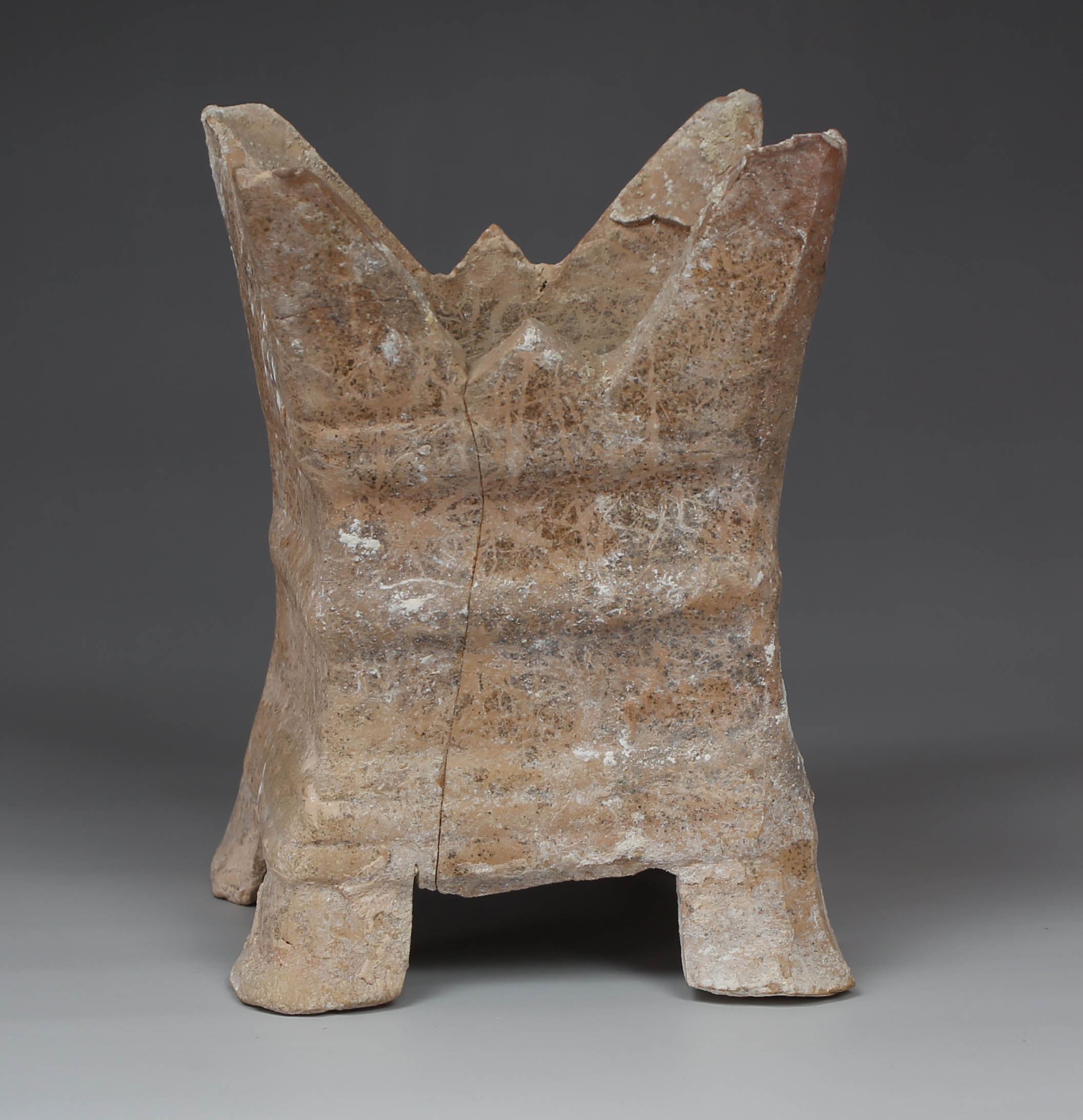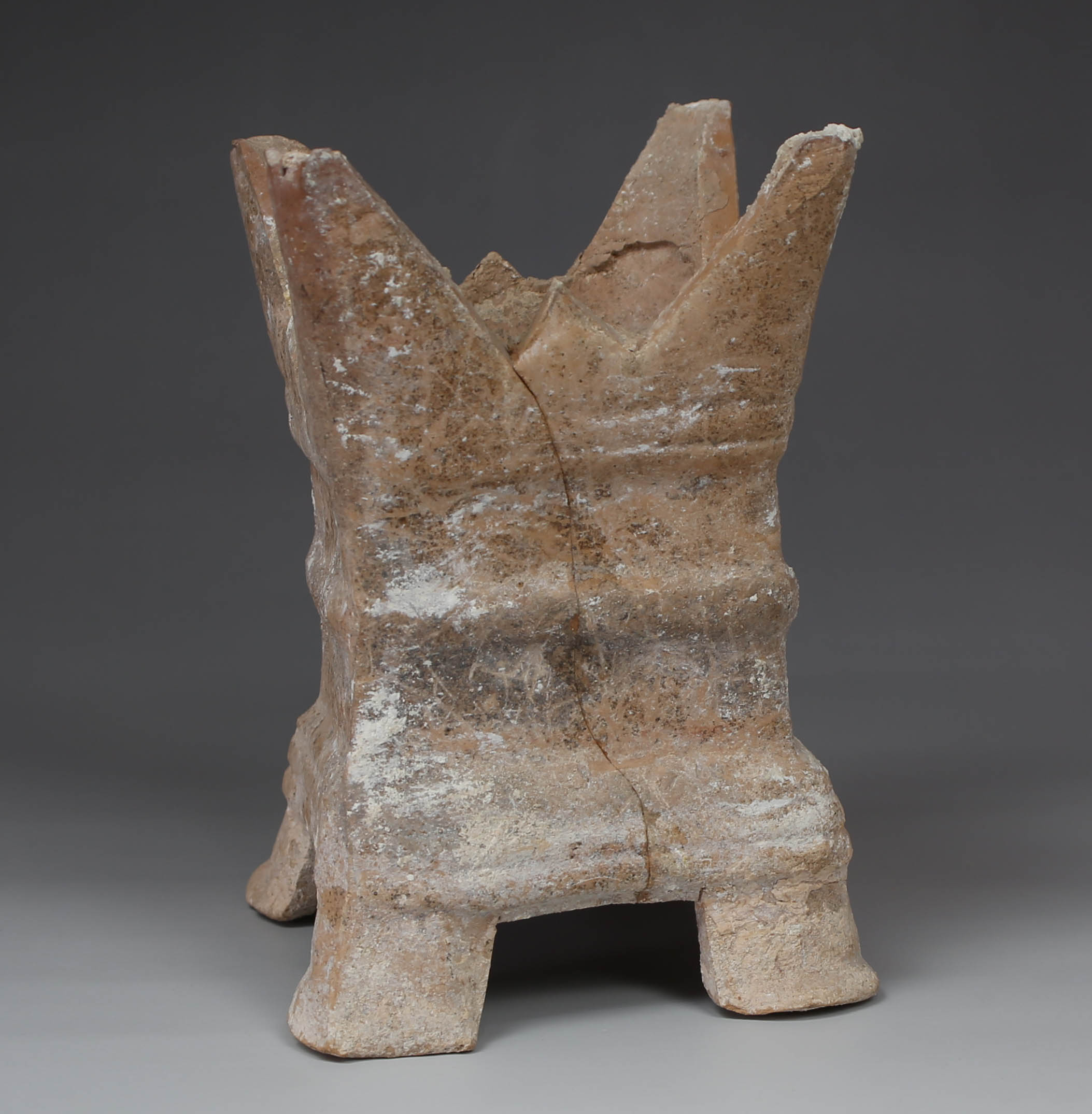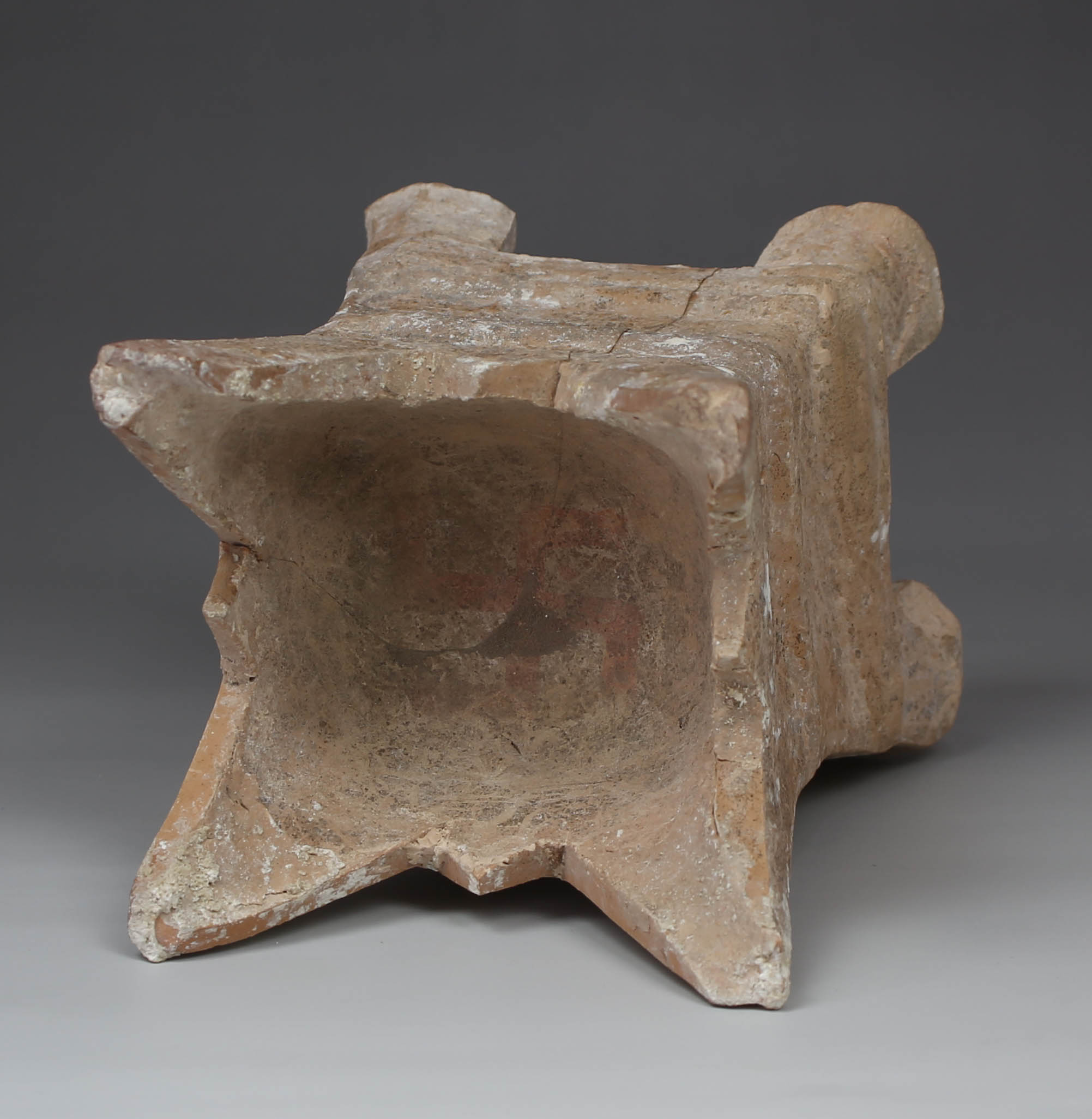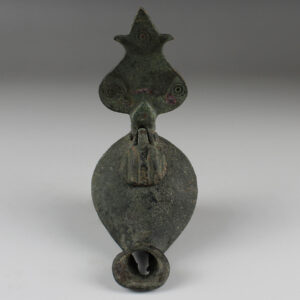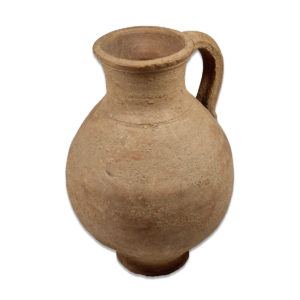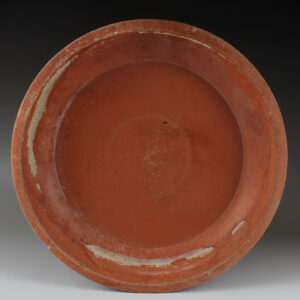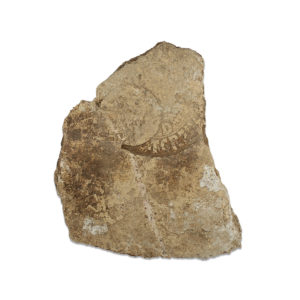Description
| ITEM | Four-horned votive altar with a swastika painted on top |
| MATERIAL | Pottery |
| CULTURE | Roman, Judaea |
| PERIOD | 1st – 2nd Century A.D |
| DIMENSIONS | 124 mm x 90 mm x 86 mm |
| CONDITION | Good condition |
| PROVENANCE | Ex Shlomo Moussaeiff collection, Herzliyah, with Israeli export licence number 57470 |
The four-horned votive altar incense burner from the Roman Judaean period represents a fascinating blend of religious symbolism, craftsmanship, and cultural identity. These unique artifacts were commonly used in religious rituals and ceremonies within the ancient Jewish community during the Roman occupation of Judaea, which lasted from the 1st century BC to the 1st century AD. The design of these incense burners typically features a square or rectangular base with four horn-like projections rising from each corner, hence the name “four-horned.” These horns likely held incense or aromatic substances, which were burned as offerings to the divine.
The four-horned votive altar incense burners served a dual purpose in ancient Judaean religious practices. Firstly, they functioned as practical vessels for burning incense, a common ritual practice in Jewish worship. Incense was believed to purify the air and create a pleasing fragrance, symbolizing the prayers and petitions of the faithful rising to the heavens. Secondly, these burners held symbolic significance within the broader religious context of Judaism. The four horns may have been associated with concepts of strength, protection, or divine favor, evoking imagery from biblical passages that reference horns as symbols of power and authority.
Archaeological evidence suggests that four-horned votive altar incense burners were produced and used extensively throughout the Roman Judaean period, indicating their importance in religious life. Many of these artifacts have been discovered in archaeological excavations of ancient Jewish settlements, synagogues, and temple complexes, providing valuable insights into the religious beliefs and practices of the time.


